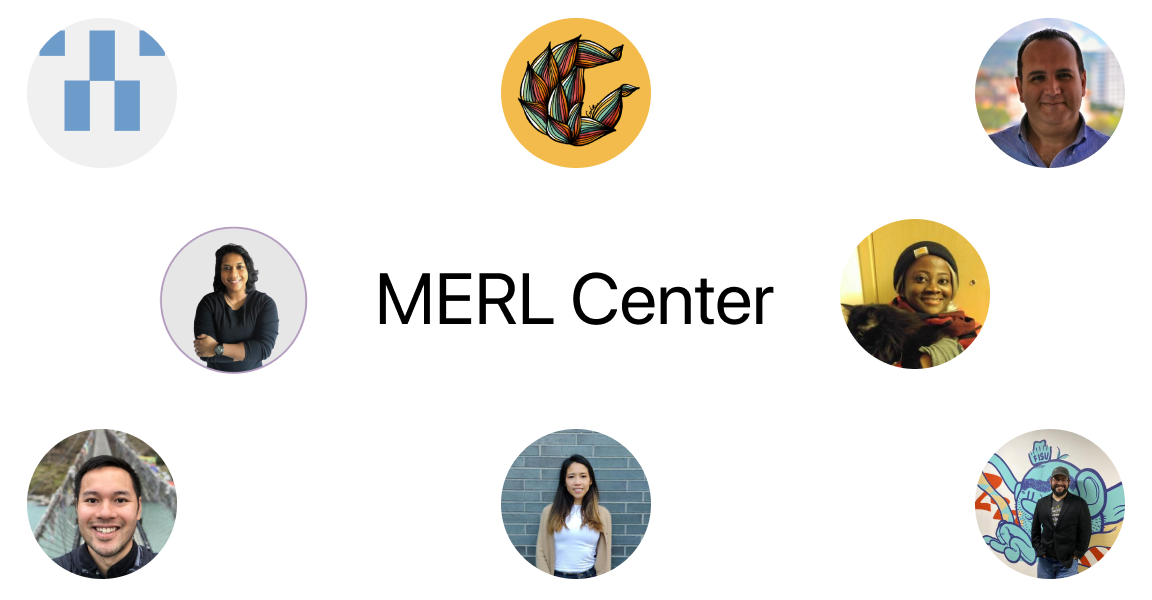Update, April 13, 2022 - please see the MERL Center website for the content pieces mentioned below.
What Started the MERL Center?
In 2019, the GitHub Tech for Social Good (originally the Open Source for Good) team attended the monitoring, evaluation, research and learning (MERL) Tech conference in Washington, DC. Our hypothesis was that while MERL practitioners drive tech advancements in the social sector, many don’t have the resources required to convince their organizations to adopt open source software. This is just one example of how technologists in the social sector often don’t have the same budget and decision-making power as technologists who work in corporate tech. (1)
At the conference, we received a ton of great feedback about what resources would be helpful. More telling was how MERL practitioners wanted us to build out those resources—they wanted to participate in the process. In response, GitHub launched the MERL Center, which has since grown into an open source community present in more than 10 countries.
MERL Center Collaboration
MERL Center members collaborate on GitHub to build resources that help MERL practitioners understand if, how, and when to use open source solutions. Most available materials are targeted for non-developers and don’t use heavy tech jargon. MERL Center’s beginner guides have already tackled complicated questions, such as when to use open data and how to map out the MERL and software development lifecycles. Case studies offering real examples of when MERL Center members have used open source solutions for their work have also been developed: Open Source Data Management System for Monitoring and Evaluation based on Data Standards, a United Nations LGBTQI Staff Rights Platform, and Ruby for Good’s Inventory Management System.
The MERL Center has flourished in the past 1.5 years—and a key to that success is the collaboration power of the GitHub platform. The center’s members use issues to discuss topics and identify project teams, Markdown files to create new pieces of content, and code owners and teams to create a clear editing structure. Every participant touchpoint has been designed to be remote-friendly and optional, which helped the MERL Center to flourish around the world during COVID. We’re also continuing to work on how to better leverage the GitHub mobile app to accommodate those in areas with lower internet and mobile data bandwidths.
Through the MERL Center, our members have a chance to work with intellectually curious, driven professionals across all ages, levels of experience, geographies, and nationalities. (We also hope to create more opportunities in languages other than English!) The MERL Center has brought software developers, statisticians, data scientists, and members in many other fields together to create much needed resources.
Our members have told us that the MERL Center has made GitHub, a tool that some consider to only be for “serious developers,” accessible to those who don’t write code but who love working with different technologies. Moreover, we’re really proud that more than a quarter of our active members are women of color.
Please see the MERL Center website for information on how to get involved.
1) See our definition of MERL here




